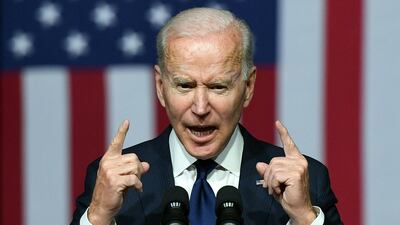A G7 agreement to establish a minimum tax rate on big tech and other companies could bring in billions of dollars in revenue for Britain and EU governments, a report says.
The plan for a global minimum to prevent companies from gaming the system is favoured by US President Joe Biden and will be discussed at talks between G7 finance ministers beginning on Friday.
Washington wants a minimum of at least 15 per cent, but there are calls for a higher floor, such as 21 per cent or 25 per cent.
Research unveiled by the European Tax Observatory found the revenues of EU countries could rise by more than $200 billion a year at the higher rate.
In this scenario, EU countries would force companies to make up the difference at home if they pay a lower rate in overseas tax havens.
This would make it impossible for companies to lower their bills by setting up shop in low-tax countries such as Ireland.
Ireland's corporate tax rate of 12.5 per cent is one of the lowest in the world, attracting a clutch of tech companies, such as Google and Facebook.
“Offering low corporate tax rates is a fundamentally unstable development strategy, one that only works as long as other countries choose to accept tax competition – and stops to work as soon as they refuse it,” the Brussels-funded observatory said in its report.
“If it wants to generate significant resources, for instance to pay for the cost of the Covid-19 pandemic, it is thus essential that the European Union polices its own multinationals.”
Britain would also be in line for extra revenue, with companies such as BP and HSBC facing much higher tax bills.
But the UK has stayed on the fence about the proposal despite support for the US initiative from France and Germany.

Britain plans to increase its corporate tax rate from 19 per cent to 25 per cent to rebuild its virus-battered finances.
The left-leaning Institute for Public Policy Research said backing the Biden plan could give the UK a "triple win" by boosting revenues, improving the tax system and showing global leadership.
But the right-leaning Institute for Economic Affairs condemned the plans as a "bureaucratic nightmare" that would be plagued by practical problems.
German Finance Minister Olaf Scholz said G7 nations were "very close to concluding an international agreement" that would lead to a "revolution in multinational corporate taxation".
Finance ministers will gather in London on Friday and Saturday before leaders, including Mr Biden, descend on Cornwall for next week's G7 summit.
Ireland, which is not in the G7, said it had “significant reservations” about the US tax proposal.
French European affairs minister Clement Beaune said Ireland was the EU member most hostile to the idea, with Cyprus and Malta also sceptical.
The G7 is also expected to discuss the post-Covid recovery, climate change and digital currency regulation.
UK Chancellor of the Exchequer Rishi Sunak is urging the G7 to foster a “green and global economic recovery” in the run-up to November’s Cop26 climate summit in Glasgow.


